In recent years, I’ve done some volunteering at an organization near us that helps people who are coming out of homeless situations.
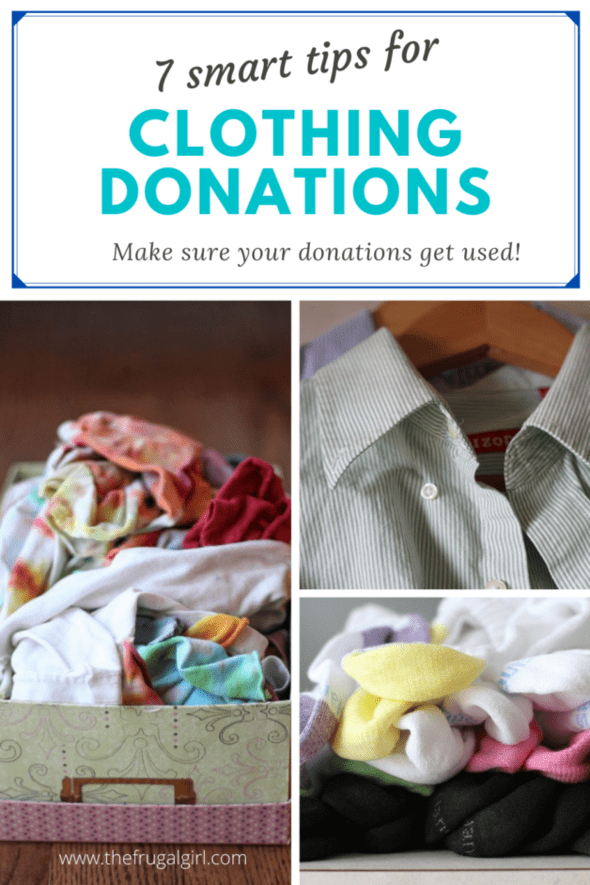
Part of this volunteer work involves putting together boxes of donated clothing, and the process I’ve helped with is the initial sorting and culling of the donated clothes.
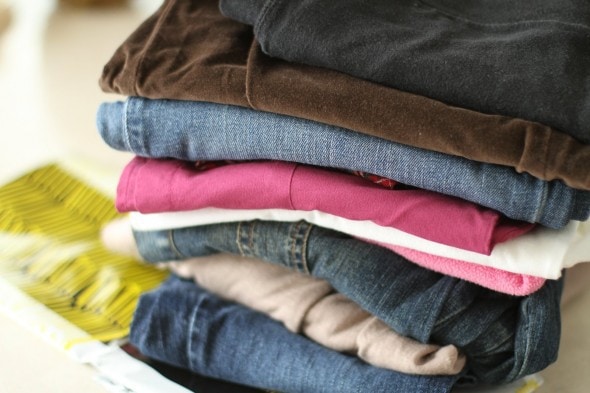
If you’re donating clothing to a charity, you obviously want your clothing to be used, not thrown away.
But I’ve seen a lot of instances where the charity was just a pit stop on the way to the trash; a lot of donations never can be used!
So, I’ve learned a few things that can help you be a smarter clothing donator.
1. Wash your donations
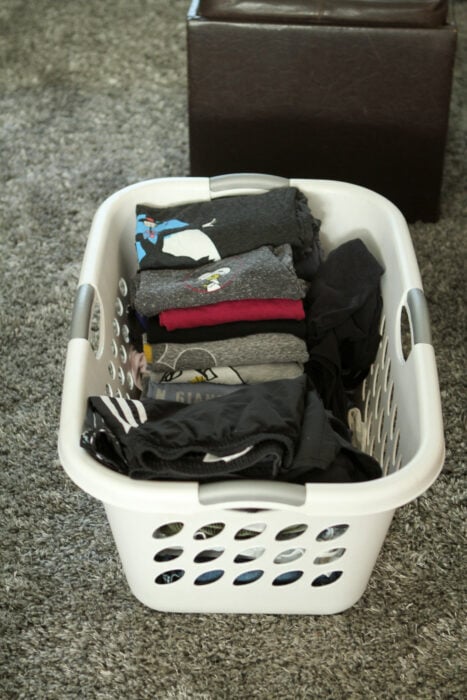
Most places that accept donations do not have the ability to wash the donations.
And most places do not want to give or sell dirty clothes, which means they just get thrown away.
I’ve had to throw away things like an otherwise perfectly good men’s coat. And had that coat been clean, it could have really served someone.
A clean item has a much higher chance of being used, so do your laundry first!
2. Rubber-band or tie shoes together
It is really, really easy to get shoes separated when you have massive amounts of donations to sort through. And shoe singletons got thrown away during my shifts.
So, take a minute to somehow attach pairs of shoes (hook the straps together or use rubber bands), especially if they are baby/toddler/kid shoes.
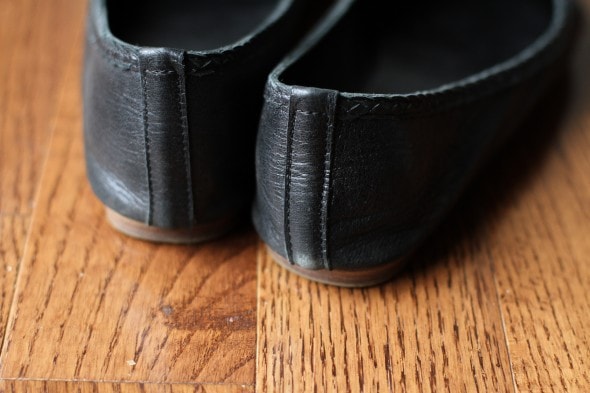
Rubber bands can break, certainly, but at least you’re giving the shoes a fighting chance to be used.
3. Rubber-band tops and bottoms together
We got a lot of donated kid pajama tops and bottoms, and while I tried to find matching sets whenever possible, it was a little tough.
If you are donating two-piece items (adult or kid), try to secure them together somehow because matched sets are much more useful.
(Random insertion: I know this post is about clothes, but if you donate other items, such as baby gear, make sure all the pieces are together. I’ve come across some seriously random pieces that have confounded me!)
4. If it’s a quick repair, do it before donating

If something is missing a button, has a broken zipper, or has holes, it will likely get trashed or sent off to recycling.
I totally understand if you don’t want to replace a zipper before you donate something (that’s such an annoying repair job!)
But if you have a minute to sew on a button, it will help your item get used.
5. Check for a place that accepts socks/underwear/bras
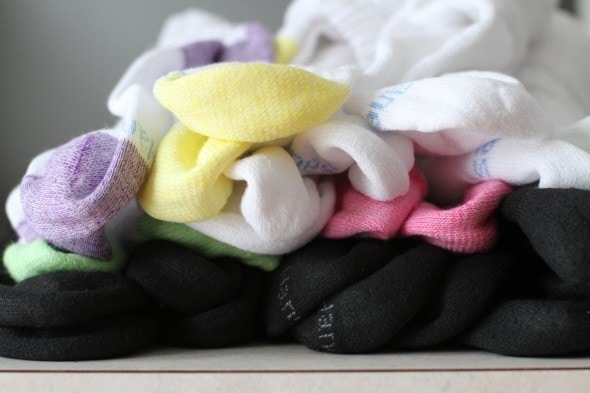
The organization I volunteer with can only keep and distribute brand new socks, bras, and underwear.
However, there are some places that can use those items, so instead of throwing them in with the rest of your donations, set them aside for a place with a specific use for them.
6. If your clothing is trash, try to make sure it gets recycled
(Edit: I initially suggested just throwing it out, but upon further reading, I’ve concluded that it does still seem to be more eco-friendly to give clothing to an organization that will try to reuse it in some way.)
However, there are a number of organizations that recycle unusable clothing, (or really, downcycle into something like industrial stuffing) so check to see if that’s the case with your charity.
Generally speaking, usable items make the best donations, though: see the FAQs here from the American Textile Recycling Service.)
7. If you have a specialty item, try giving it away on a local group
The charity where I volunteered can make best use of items that are widely useful.
If you have specialty gear like a sports-related item, dance items, and so on, list them on your local Facebook group, Buy Nothing Group, or Next-door.
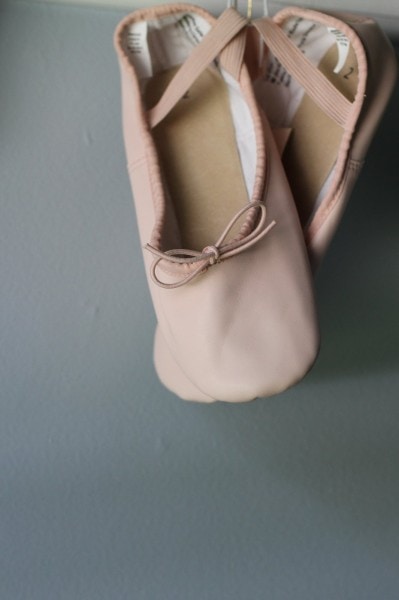
I’ve also managed to give away a bag of jeans with holes in them on these groups (someone did crafts with them)
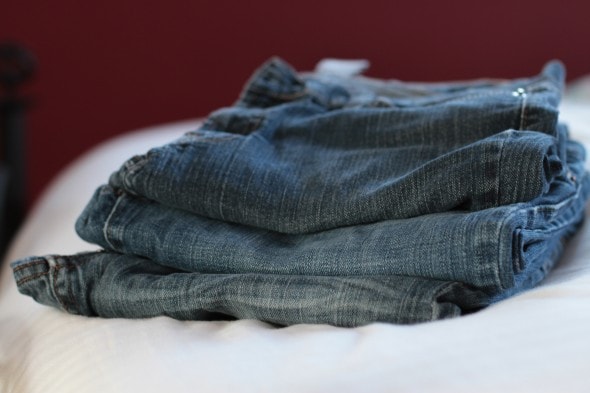
It takes a little extra work, yes, but the satisfaction of knowing I paired my item with someone who wants it?
Totally worth it to me.
Can’t bear to throw it out? Repurpose it at home.
A few ideas:
- No one wants your old family reunion t-shirt, so cut it up and use the pieces for cleaning rags.
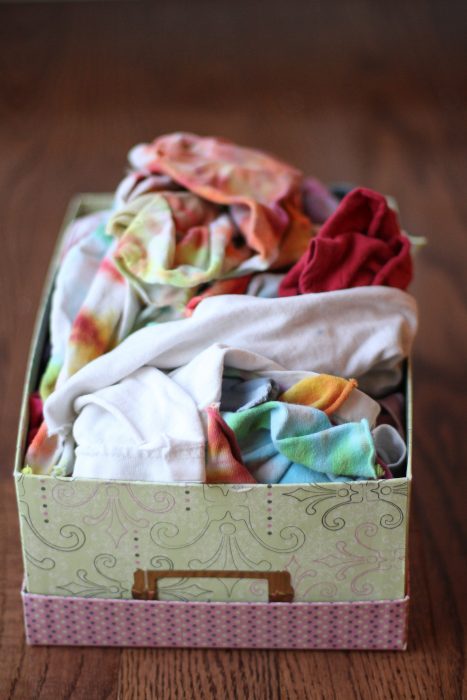
- Those kid leggings with holes in them? Keep a pair in your rag bag to use for repairs, like I do.
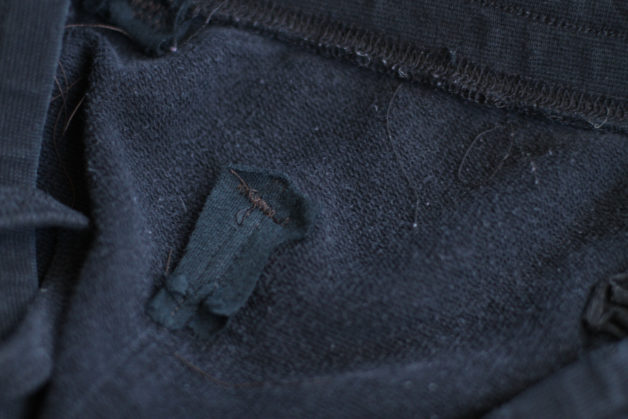
- Use a stained t-shirt as your painting shirt.
(I firmly believe in having both a summer and winter set of painting clothes!)
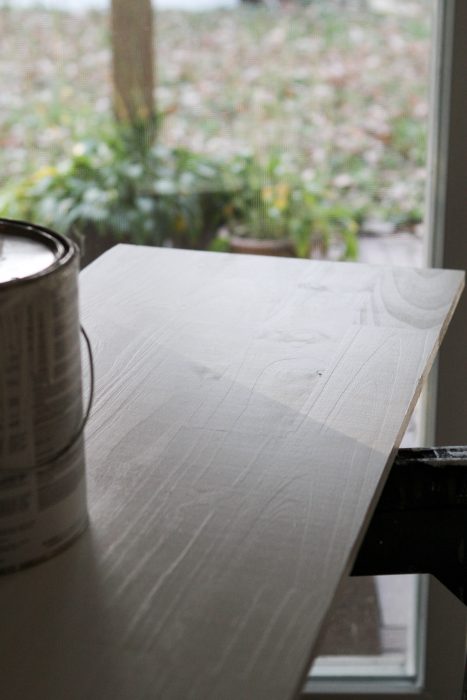
- Use old clothing to cushion your holiday items when you store them away.
- If you have old towels or blankets, you can donate them to animal rescues (I can attest to the fact that we use them where we volunteer.)
Readers, any other tips to add to mine?
P.S. On recycling: here’s a BBC article about why clothes are so hard to recycle.
And here’s another article on the problems with fabric recycling efforts.
P.P.S. A slightly related note: buying well-made, classic clothes, and taking good care of them is also a good way to prevent clothing waste. These types of clothes will last you a long time, or if you donate them, they’ll likely be of use to someone else as well.

Kay
Tuesday 25th of May 2021
I also volunteer at a thrift shop and we donate old denim jeans to a company that recycles them into insulation for homes. I don’t know if you have access to such a program but it might be something to look into. They take anything denim no matter how ratty and worn out.
Jenni@TTL
Sunday 23rd of May 2021
Thanks for this information. It's always interesting to have the inside scoop on how a place operates. It makes complete sense why certain items can't be used and how some items are more of a burden for the donation center. We recently learned all about this with the recycling process. I know not to 'wishcycle' my plastics and now I know not to wishcycle my unwanted clothes.
priskill
Wednesday 19th of May 2021
I had never heard about the "2nd dirtiest industry" -- Yikes! I thought I read somewhere that Goodwill and company will recycle old, unsaleable clothing and fabric -- maybe not? I do wear my clothes into the ground, usually, so maybe I will stick with making rags out of most of them. Great info and suggestions!u
Jody S.
Wednesday 19th of May 2021
Last summer I had a (not well-attended) yard sale out here in the country. I had a pile of those stained clothes and such for free; one fellow sorted through it for good rags for his shop. I was thrilled somebody could use my extra.
Debbie Elliott
Wednesday 19th of May 2021
Do you know if Good Will sews on buttons, washes clothing, shines shoes, etc. Some how I thought I was giving men and women work to do with my recycled clothes. Perhaps I'm not....do you know?
Kristen
Wednesday 19th of May 2021
So, I think they do provide jobs for people who work in the stores, but I don't know how much specific work they do on the donated merchandise.
I do think that the revenue from the store funds job-training opportunities outside of the stores, though!